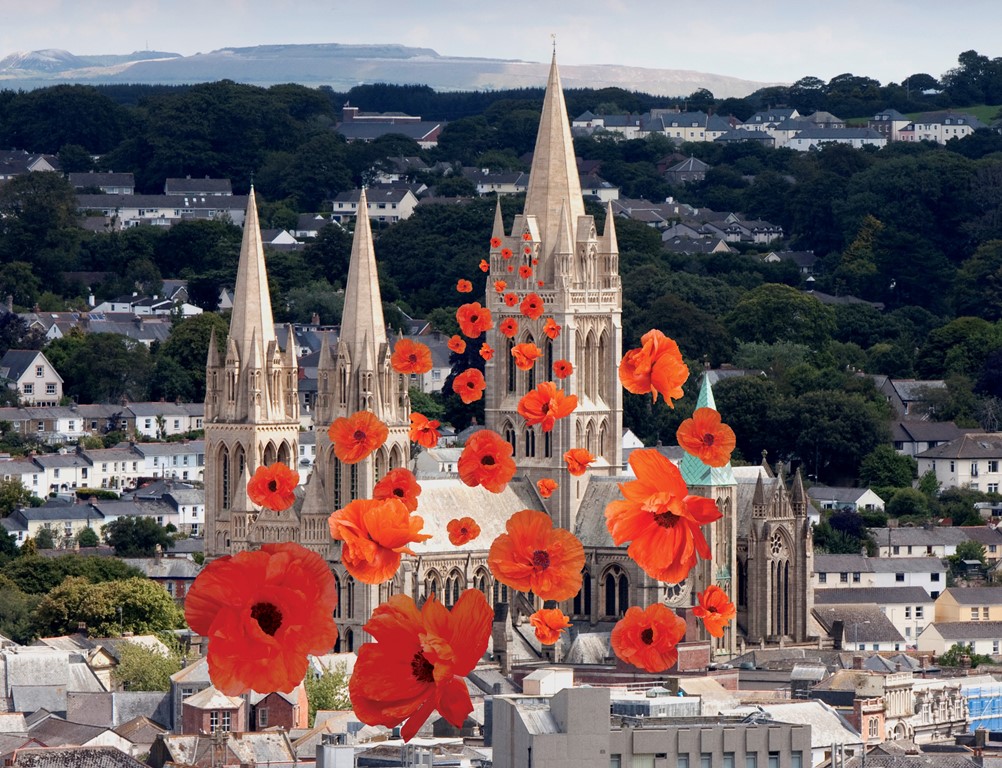Cornwall Remembers

Four years ago, the cathedral oversaw a programme of lectures, poetry readings, concerts and services entitled Cornwall Remembers, a series of commemorative events surrounding the hundredth anniversary of the outbreak of the First World War. This autumn, the cathedral is also providing another series of events commemorating the end of that terrible conflict.
There will be a series of concerts starting on 21st September with the world-acclaimed group Tenebrae delivering a programme of music centring on the impact of war and violence, but in a way that takes us beyond the brutality of conflict to deeper emotions and responses. As Tenebrae’s publicity puts it: The British have a culture of commemoration in music and the choral tradition possesses an unmistakable role in giving voice and words to these sentiments. The finest pairing of poetry and music is offered in a range of works, including Hubert Parry’s Songs of Farewell, some already treasured in the heart of the nation, with other masterpieces which might well join them.
Then, on 3rd November, Truro Choral Society will be performing Karl Jenkins’ Armed Man Mass, subtitled a Mass for Peace, and a week later, the eve of Armistice Day, Three Spires Singers and Orchestra will be performing a series of peace-related works, including Vaughan Williams’ Dona Nobis Pacem – ‘Give us Peace’ – a work written by someone who had seen the carnage of the First World War at first hand (the composer was an ambulance driver) and who feared the possibility of another conflict tearing Europe apart (the work was written in 1936).
Our Canon Theologian, Revd Professor Mark Chapman, will be giving a talk on the Theology of the First World War on Saturday 3rd November in the Assembly Room of the Old Cathedral School [check time with Alan!!]. The War generated a significant theological response, and Mark will be guiding us through the highways and byways of that.
Liturgically, we will have our usual services: a service with the Royal British Legion at 3.15 on the 11th November and a sung Requiem in the evening of that day, beginning at 6.30 pm. But, in many respects, the most poignant service we will offer could well be a special service at 10.30 on the morning of Armistice Day. This will not be a Eucharist, but a particularly reflective service in which there will be readings, prayers, and a new anthem
We have found, especially in our remembrance of those killed on the hundredth anniversary of the Cornish fallen at our daily
At the heart of this
And just to show that the consequences of the War lasted longer than the 11th November, we will continue to remember those who died as a result of the War until next Easter when we will have a commemorative requiem for the Cornish fallen of the First World War.
We will remember them.
For the Remembrance Service this year we need help to create

